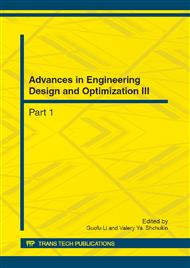p.383
p.388
p.392
p.396
p.400
p.405
p.410
p.414
p.418
Evaluation of User-Based Collaborative Filtering Algorithms Using Regression
Abstract:
The explosive growth of world-wide-web and the emergence of e-commerce make the Collaborative Filtering (CF) algorithms widely used in recommender systems to identify a set of items that will be of interest for a certain user. However, with the rapid growth in the number of users and items, the quality of recommendation decreases. Improved CF algorithms are needed to provide a large number of users with the ability to efficiently obtain useful information. Different user-based approaches for computing similarities (e.g., correlation-based vs. adjusted-cosine) and different techniques for obtaining recommendations (e.g., weighted sum vs. regression model) are presented in the paper. The main steps of the algorithms are divided into two steps. The first is pre-computation of the similarities and pre-selecting of the N-nearest neighbors in the training phase, and the second is online prediction computation. All the algorithms require time linear in the number of items for online predicting. The experiments suggest that the user-based regression algorithms provide better qualities than those not using regression, and the average MAE drop is by 11.16%. Furthermore, the correlation-based regression gets the best MAE drop by 19.41%, and it provides better quality than the best available classic Pearson algorithms.
Info:
Periodical:
Pages:
400-404
Citation:
Online since:
October 2012
Authors:
Price:
Сopyright:
© 2012 Trans Tech Publications Ltd. All Rights Reserved
Share:
Citation:


